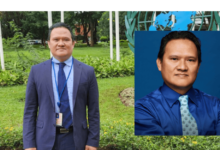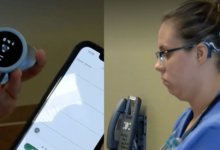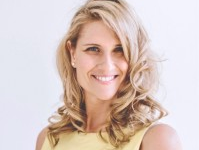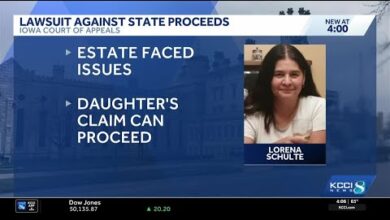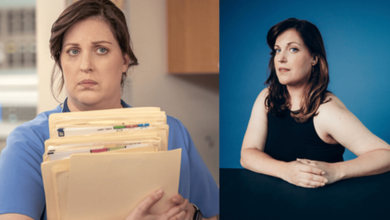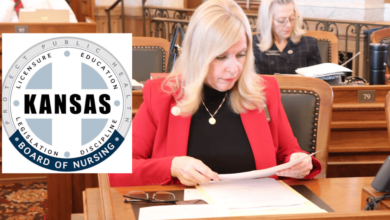I Created Operation Happy Nurse to Provide Nurses with a Safe Space to Feel
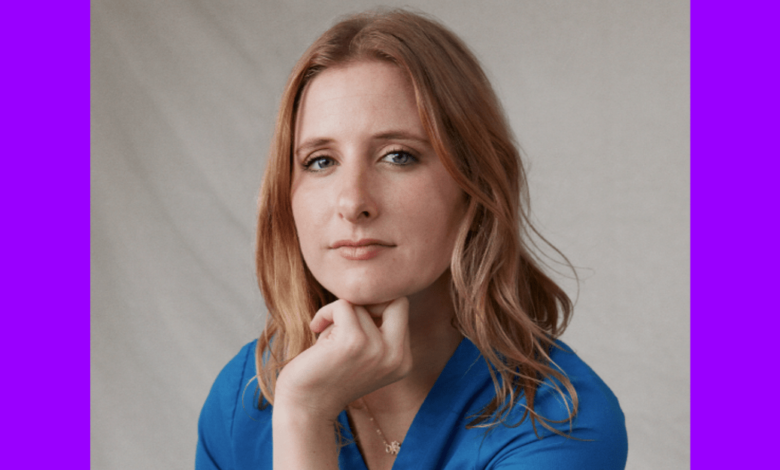
This is a guest post written by Shannon McPeek, Founder of Operation Happy Nurse
I remember my anxious feelings growing up – the deep aching in my chest, the inability to fall asleep, or my brain overthinking every little thing. This was the natural response my body had to life’s circumstances like a breakup with a high school boyfriend, a fight with a friend, hearing the negative opinions others’ had about me or my decisions, a fight with my parents, or a terrible performance during a sporting event – all the dramas of a young, White, cisgender girl who grew up in a stable home with privilege and that midwestern kindness.
I never truly had to cope with the death of loved ones. I lost one grandparent when I was younger, and although I have fond memories of her, I also have very hazy ones, barely remembering specific events or the intricacies of who she was.
I dealt with the chest aches of anxiety and shimmers of depression, but most days, I walked through life feeling okay.
In university, I learned that my natural instinct was to push emotions down. After seeing a terrible abuse case, watching a patient code, and experiencing my own sexual assault, I found that I’d rather pretend everything was okay than truly see and experience the feelings of sadness, fear, and trauma.
I was drawn to the world of medicine. Knowing day in and day out that the impact you make is unlike any other. As a nurse, you change lives daily. I can say that I have saved a life. I can say that I have changed a life. I feel that as a nurse, the impact you make is lasting. You may not remember every patient you have, but they will remember the impact you made on them. I selfishly adore that feeling, the feeling of being a changemaker.
On the flip side of the beautiful reality of nursing is the dark side – the patients you cannot save, the family that does not treat each other with kindness and respect, the fear of physical altercations, the fear of emotional altercations, or the pressure of knowing you are the last line of defense even when the system as a whole fails.
Immediately after university graduation, I started my role as a nurse in a Neonatal ICU in Washington, D.C. Many say you shouldn’t start in a setting like the NICU, but the NICU is what kept me in nursing. No other unit spoke to me the way the NICU did.
After the first death of a patient I cared for, I went to their funeral. I thought to myself: Could I have done anything differently? Could I have saved them? Could I have tried harder? The guilt of my “Could I’s” ate me up inside. At the funeral, when the family mentioned my name as a caregiver, I felt a sadness I had never experienced before. A loss of a life cut way too short. A beautiful and loving family hurting.
I decided that I didn’t want to fear the “Could I’s”. So, I started checking things more times over. I started not trusting my eyes or my mind. I looked over everything to make sure I wouldn’t miss anything. I wanted to avoid that feeling of loss and guilt with every fiber of my being.
Shortly into my career, I began waking up with those chest aches from my childhood, but now they were present every day. The anxiety progressed into the urge to check my oven in multiples of three, the stove in multiples of three, underneath my bed, the door lock, my alarm, and my blinds. My daily chest aches had started to present as signs and symptoms of obsessive-compulsive disorder, which I made sure to be a personal experience. I did not share these changes as I truly didn’t recognize them.
At work, I was extremely clean, a “type A” nurse, a nurse with attention to detail. At least, in the eyes of my peers. Although I know that being clean, “type A”, and meticulous are not a bad thing, being obsessive was not a healthy way for me to deal with my stress.
One day, I was having a lovely day with my amazing coworkers. The shift had just ended, and one of my closest friends on the unit approached me. She told me she had something to tell me, that she wanted to wait until the end of my shift to ensure I could stay focused during that shift. I learned that a patient I cared for deeply, who we had sent to a different hospital for surgery, had passed away.
It’s hard to explain how I felt because, truthfully, looking back on it, I think the correct term is numb. I was sad, but I wasn’t allowed to be sad. It was “part of the job”. Loss happened. I just had to deal with it. So again, I found space inside me to push the feelings away and move forward.
During this time, an irritability that didn’t exist before appeared. A fuse in me that kept getting shorter. I didn’t have the same compassion as I once did. It still existed, the container of my compassion just got smaller. These tiny switches happened over time and were faint, like wearing a prescription that’s close to what you need but not exact. Life was just slightly blurry.
After that patient passed away and I once again pushed forward, my irritability got worse. My significant other and I went to an amusement park, and I clearly remember getting mad at him because he wanted to ride a roller coaster twice. I was so agitated and aghast that he couldn’t understand why this decision was incredibly annoying. A few weeks later, he broke up with me while I was at work.
We spoke on the phone. He told me I was acting differently for the past month. I told him a month ago, one of my favorite patients passed away. He said that if he were in a similar circumstance, he wouldn’t react that way. I got agitated. How could he know how he would react as our situations in nursing are so unique and intricate?
At the time, I believed he should have stood by me. I believed he needed to help me get through this difficult period of time. I believed he needed to help me heal. What I have come to realize is that we are in charge of our happiness. Our happiness, our emotions, our life – they are all our own. We get to be in the driver’s seat of our life, and that is a beautiful thing. We are not the passengers of our lives.
I am extremely thankful for this man. Because of this breakup and him telling me what I could not clearly see, I looked internally and focused on myself and my mental well-being. I researched different stress relievers, focused on what helped me heal, and started my journey to allow myself to feel again.
Thanks to this experience, I started the nonprofit organization Operation Happy Nurse, a free online community for nurses with the focus of providing ourselves with the resources we need to cope. This community allows us to feel, to express, to release, and to do so surrounded by individuals who do understand our struggles. Our community knows that it is okay to react and knows the intricacies of the nursing profession.
If you are also struggling, know that it is okay. It is okay to not always be your best self. It is okay to feel and to cry. It is okay to feel hurt, angry, and upset. We are not meant to live our lives in their entirety feeling okay. We are meant to experience a variety of emotions. Life is not as beautiful if we don’t allow ourselves to feel every messy ounce of it.
